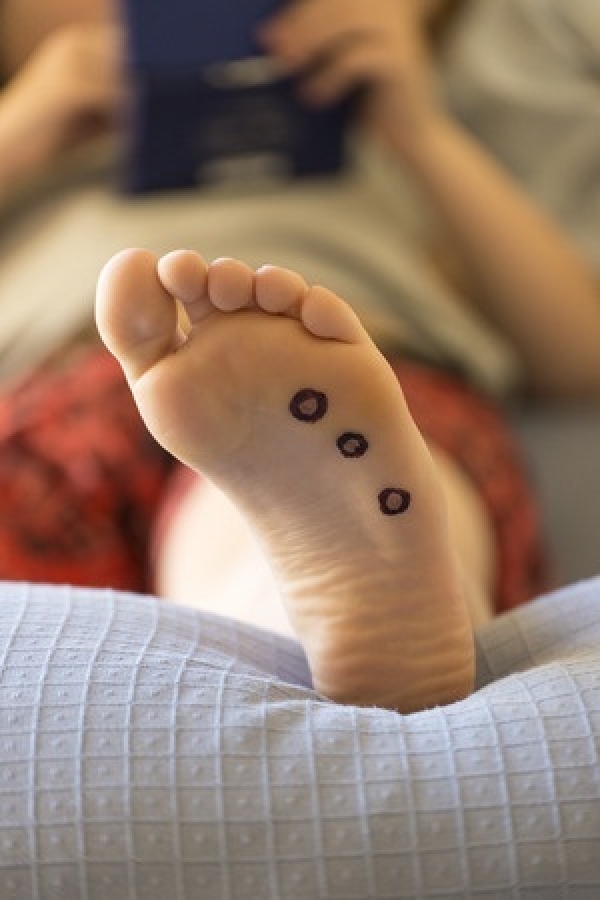Connect With Us
Blogs

Foot Warts (2)
Frequently patients will come to us at Superior Foot & Ankle Center to treat warts. What we find interesting is the amount of misinformation and misconceptions out there about this common condition. Below are some myths about warts:
MYTH: Warts only occur in people with poor hygiene.
FACT: Warts are caused by a virus that penetrates your skin and then forms the telltale fleshy bump. They do not result from lack of cleanliness in the patient but rather that the patient walked on a surface where the virus was present. Viruses thrive in moist, warm environments such as showers at the gym or the community pool. For this reason, it is recommended that patients wear flip flops or rubber shower shoes when walking around in these types of public places.
MYTH: You can’t catch a wart from another person.
FACT: Warts are actually quite contagious. They can spread from person to person and also to other parts of your own body. All you have to do is scratch a wart and then touch another place on your body and the virus spreads. If someone in your family has a wart on their foot you should take extra care cleaning the shower and never share towels, shoes, socks, nail clippers, emery boards or any other items that touch another person’s foot.
MYTH: You can get rid of warts with wart removers you find at the drug store.
FACT: While over-the-counter products do exist for removing warts they can damage surrounding healthy tissue and may be unsuccessful in eliminating warts. Warts can be very stubborn to remove and can sometimes recur after they appear to be completely gone. It’s best to let one of our podiatrists, Dr. Victoria Foley and Dr. Constance Omelas care for your wart. The foot doctor will be able to identify the type of wart and prescribe the proper treatment to safely remove it.
MYTH: Warts don’t really do any harm so you don’t have to remove them if you don’t want to.
FACT: While it’s true that warts are not generally dangerous or harmful, they can cause pain and discomfort, particularly if they develop on the heel or ball of your foot. Since they are also contagious, it’s best to get them removed as soon as possible. Left untreated warts can also grow in size and multiply on your foot.
If you have a wart, contact our Long Beach office for an appointment by calling: 562-420-9800.
How to Deal with Foot Warts
Do you have a wart or warts on your feet, but you don’t know how to get rid of them? You may be surprised to learn that, in most cases, you should be able to treat those pesky warts by yourself. Here’s a quick look at the different types of warts and how you can treat them.
Types of Foot Warts
Warts can occur in a variety of shapes and sizes, appearing either as a bump with a rough surface or as flat and smooth. Some of the different types of warts include:
- Common warts—usually appear by themselves or in groups. They are usually rough, gray-brown, dome-shaped growths. They may also exhibit a cauliflower-like appearance.
- Plantar warts—can develop on any part of the foot. Walking can become painful, and the pressure from walking or standing can push the plantar warts beneath the surface, causing a layer of tough skin similar to a callus to develop over it. Sometimes dark specks are visible beneath the wart’s surface. Multiple plantar warts can form in a large, flat cluster known as a mosaic wart.
- Flat warts—these warts are usually smaller than the eraser end of a pencil, with many occurring in one area. They have flat tops and can be light pink, light brown, or light yellow. Flat warts are often spread by shaving.
- Periungual warts—are rough, irregular bumps found under and around toenails and fingernails.
Home Remedies
Home treatment is often the first treatment for warts, usually proving to be less painful than surgical treatment. Some home remedies include:
- Salicylic acid—this treatment is the most desirable wart treatment because of its effectiveness and safety. It usually takes two to three months.
- Tape occlusion—use duct tape to cover the wart for a period of time. This treatment takes one to two months.
- Over-the-counter cryotherapy—home cryotherapy kits that you can buy without a prescription to freeze away the warts. These kits may be safe for warts on the hands or feet. It is important that you make sure to follow the instructions carefully.
Home treatment for plantar warts differs from treating other types of warts. You can reduce the pain caused by plantar warts by:
- Wearing comfortable shoes and socks
- Avoiding high heels
- Padding the wart with a doughnut-shaped felt or moleskin patch
- Using non-prescription medications (aspirin, ibuprofen, or acetaminophen)
Other Treatment Options
If you find that home remedies aren’t doing the trick with getting rid of your warts, then you should consult with your doctor about cryotherapy.
Cryotherapy is a standard treatment for warts that can be done in a doctor’s office in less than a minute. Cryotherapy involves freezing a wart using a very cold substance (liquid nitrogen), which is usually applied using a probe or a cotton swab. You may have to undergo cryotherapy one to four times, with one to three weeks between each treatment, before your warts go away.
Pain from cryotherapy can last up to three days, although healing is generally quick (seven to 14 days) with little to no scarring. There is also a small chance of infection occurring from cryotherapy.
Wart Prevention
The main way to prevent warts is to avoid contact with HPV (the human papillomavirus). Tips for avoiding HPV include:
- Avoid touching warts on yourself or on others
- Don’t share razors, towels, socks, or shoes with other people
- Avoid walking barefoot on warm, moist surfaces (public showers, locker rooms, or pool areas)
- Keep your feet dry
- Avoid irritating the soles of your feet
Tips on preventing warts from spreading include:
- Keep warts covered with a bandage or athletic tape
- Don’t bite your nails or cuticles
Consult with Your Doctor
It is not odd for people to confuse warts with other skin conditions, such as skin tags or moles, and it is important to make sure that you have a correct diagnosis before you start home treatments. Book a consultation with Dr. Vikki and Dr. Connie so that they can help you get the right diagnosis and the best treatment plan for your foot warts.


